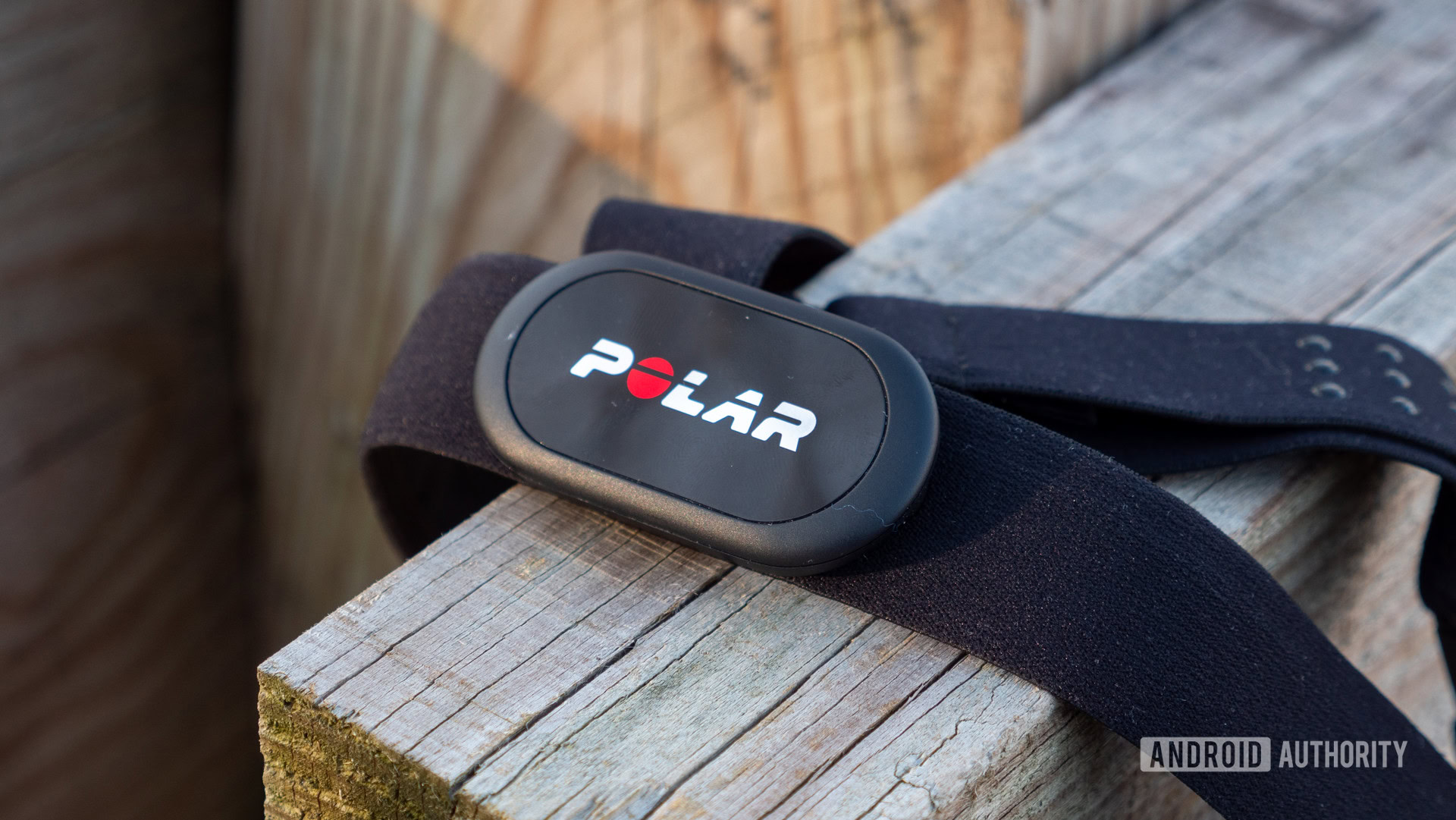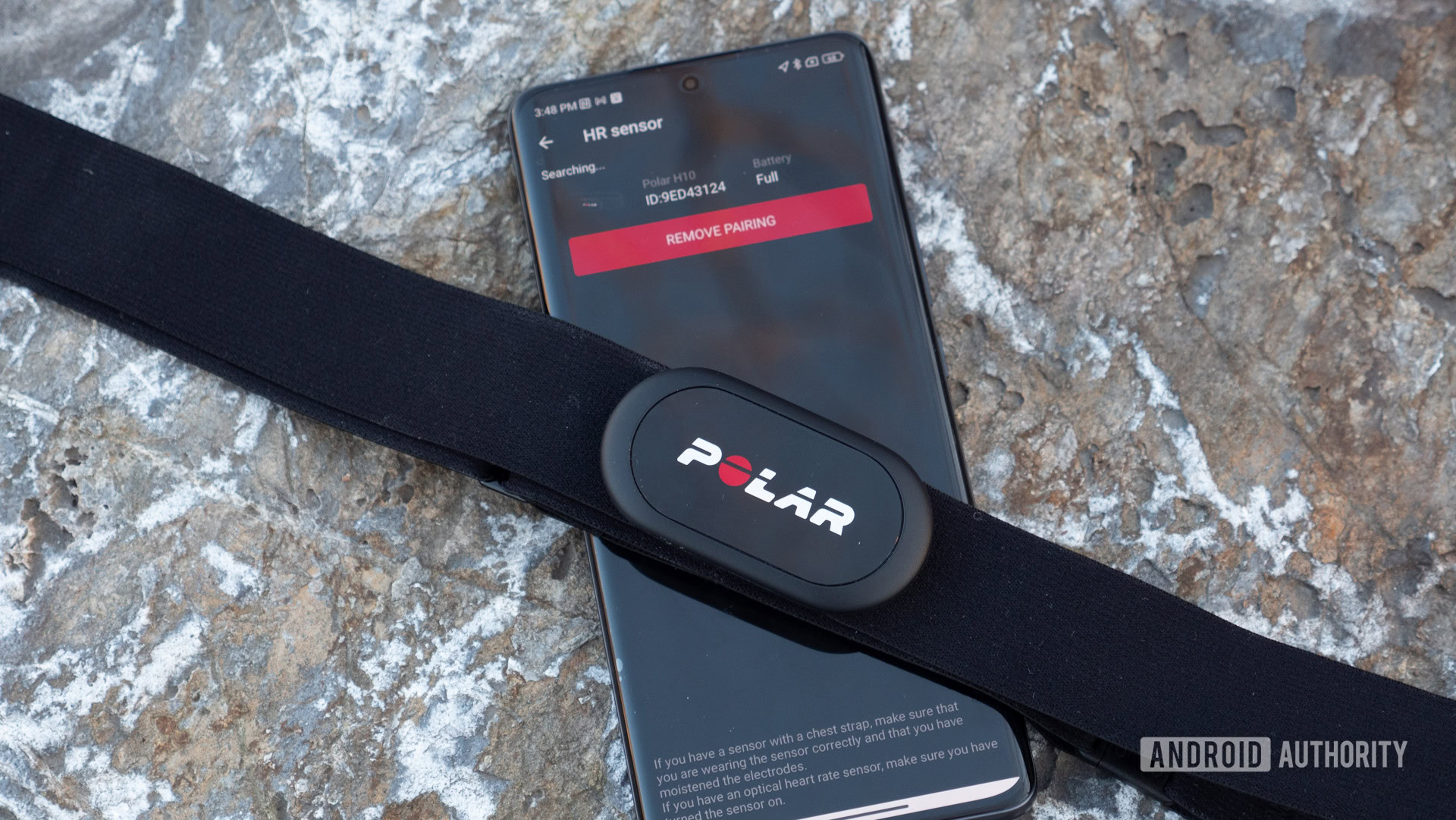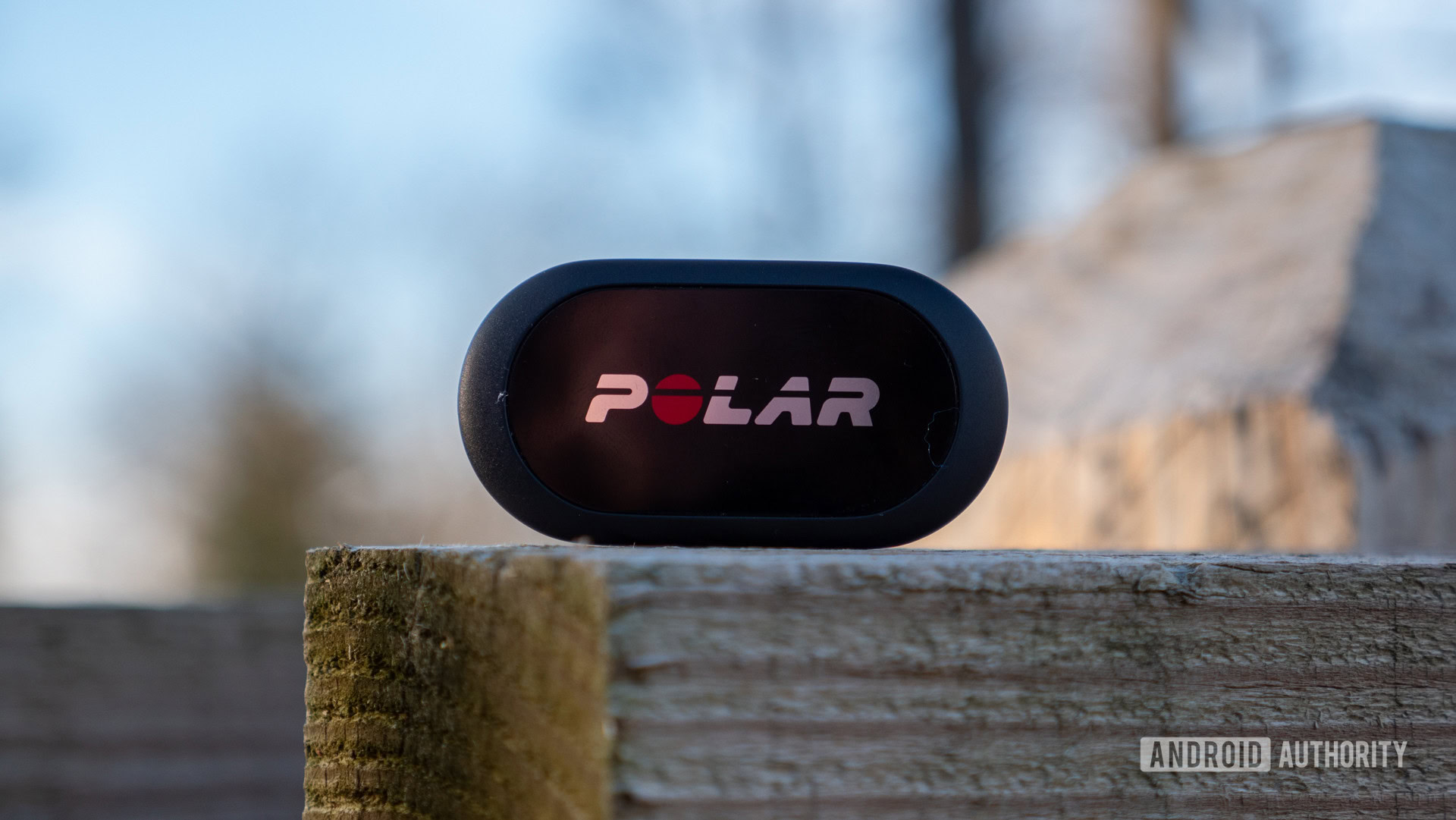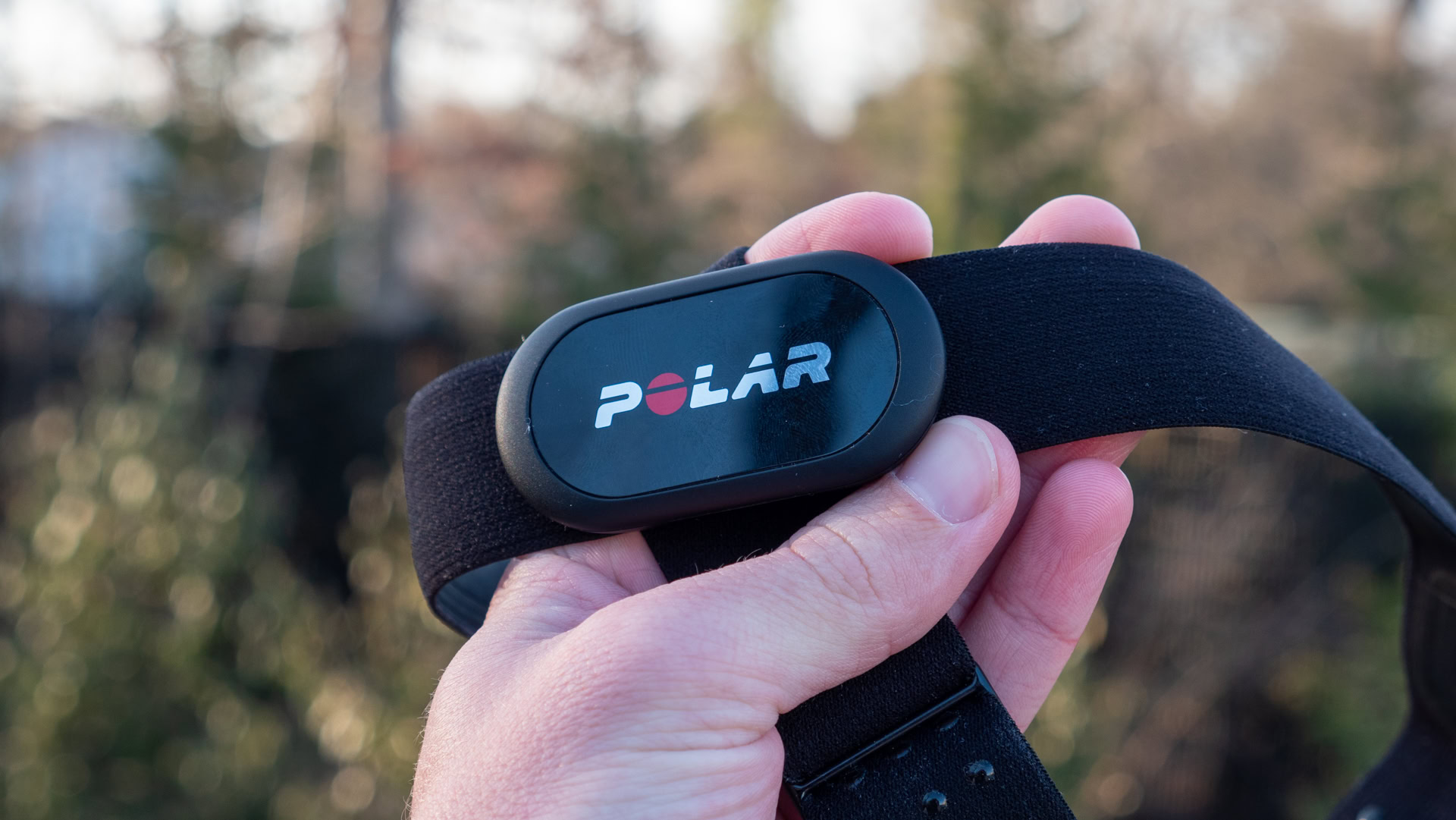Affiliate links on Android Authority may earn us a commission. Learn more.
The Polar H10 chest strap is the unsung hero of our wearables team
Published onJanuary 2, 2023

Everyone thinks running is an easy and affordable hobby to jump into. Grab a pair of shoes and some basic athletic clothes and get out the door. Before long, you might decide to train for a race. After that, you might even decide that you need a GPS watch to track your miles and offer more advanced workout data. Eventually, it feels like a page from “If You Give a Mouse a Cookie.” Well, there’s one more accessory to add to your running utility belt — the Polar H10 heart rate chest strap.
Polar’s workhorse H10 isn’t a new chest strap. It’s outlived some of its launch day features by a good margin. It is also the chest strap our entire team uses as a control device when writing wearables reviews, but we’ve never written about it in great detail. That changes today.
Set it and forget it

The Polar H10 chest strap is as simple as can be. It has no buttons or switches, and the only opening is a battery cap for replacing the included CR2025 after about a year. Really, the biggest decision you have to make is which size band is right for you — they range from XS to XXL.
Once you’ve settled on a size, it’s time to pair the Polar H10 to your phone (and then to your GPS watch of choice) and get to tracking. Pairing can be easier said than done, but only because you have to come to grips with two different Polar apps. Polar Flow is the equivalent of Samsung’s Galaxy Wearable app, with controls for watches like the Ignite 3 or Grit X, while Polar Beat covers activity tracking for countless workout types. There’s a bit of overlap between the two, and neither (or the combination of both) is as intuitive as apps like Garmin Connect or Coros’ equivalent.
Simplicity is the Polar H10's calling card, except for when it comes to companion apps.
The good news — and why we like the H10 so much — is that you don’t really need Polar’s apps after the initial setup. I immediately paired the chest strap to my trusty Coros Pace 2, which automatically replaced the readout from the watch’s optical heart rate sensor. Unlike most wrist-worn activity trackers, the Polar H10 uses an electrocardiogram (ECG) to track your heart rate. To get nerdy, that means relying on the electrical signals from your heart rather than the change in the size of your blood vessels.
The difference between an optical heart rate sensor and an ECG won’t matter much for a simple jog around town. If you’re not trying to push your heart rate, one won’t be much faster or more accurate than the other. However, Polar’s ECG starts to shine a bit brighter during sprints and harder intervals with rapid changes in your heart rate. It’s quicker to pick up on electrical changes, while increased blood flow takes a few extra seconds to hit your heart.
If you’re itching to get your Polar H10 hooked up to another wearable, you should know that you have options. You can either roll with Bluetooth Low Energy (BLE) or ANT+. While BLE offers the faster transmission of the two, ANT+ might be the better option if you’re connecting to multiple devices like a GPS watch and a Zwift stationary bike.
Earning a place in our heart(rate)s

The Polar H10 is aging — it launched in 2017, after all — but it’s doing so gracefully. It’s served generations of Android Authority reviewers, bringing the exact same setup and experience every single time. If I test it against an Apple Watch Series 8 and my colleague Kaitlyn tests it against a Samsung Galaxy Watch 5 Pro, our data will have a common thread. Is it a perfect science? No, but neither is having someone wear four watches across two wrists for testing purposes.
On a more personal level, I like to consider myself the de facto runner for the Android Authority team. Sometimes it goes well, and sometimes, it doesn’t, but having a chest strap that’s stood the test of time helps me to trust the data I’m gathering. While I love a simple jog around town, I sprinkle in some interval work and speed training here and there, and the Polar H10 helps my Coros Pace 2 keep up.
As the de facto runner with dreams of speed, I want all the data I can get.
There are a few retired features that remind us that the Polar H10 isn’t as young as it once was, but they feel like little more than stray gray hairs. For example, it launched with the ability to overlay your heart rate data on footage captured with a GoPro — the GoPro Hero 4, specifically. That feature only stuck around until the Hero 5 — we’re now on the Hero 11 — but the chest strap hasn’t looked back. It still has the basics locked down, GoPro support or not.
Polar H10 review: Should you buy it?

Polar might introduce another premium heart rate chest strap down the line, but there’s no guarantee it’ll earn a place in our hearts. The Polar H10 chest strap remains an excellent addition to any fitness tracking setup.
Would you wear a heart rate chest strap?
It’s waterproof to 30 meters, offers 400 hours of battery life from its tiny cell, and you don’t have to pay extra for its “pro” strap. Flexible connectivity options and a wide range of usable temperatures (-10°C to 50°C) only add to the environments that the Polar H10 can crack. If you need a chest strap with a proven pedigree, you can’t go wrong with the Polar H10.

